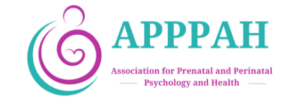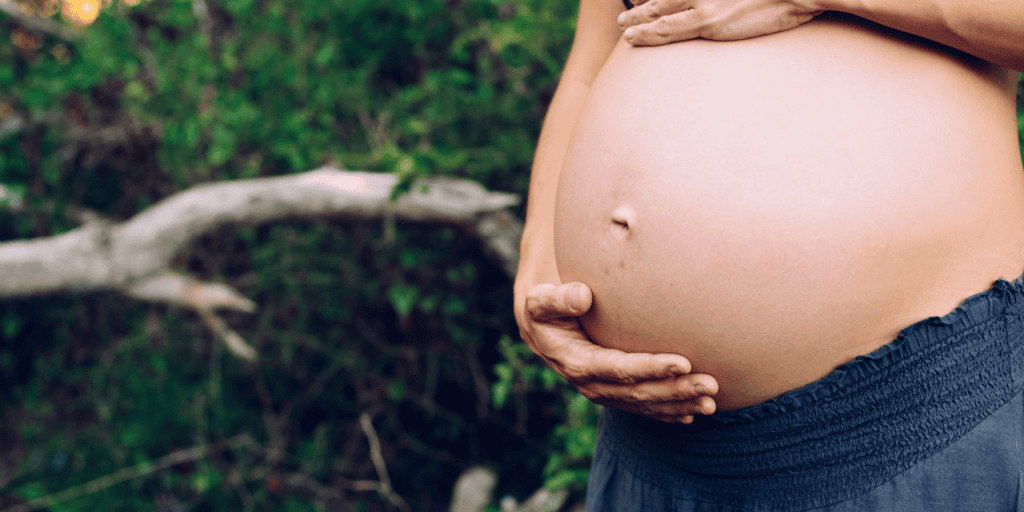APPPAH’s Unique Contribution
APPPAH promotes the understanding that early connections and nurturing can begin in the womb, well before birth.
For most of recorded history, it has been believed that babies were not capable of thinking, feeling, or having their own experiences before birth or even for many months afterward; however, we now know babies do have their own thoughts, feelings, and experiences even before birth. We know that many children and adults have memories of their birth and events that occurred prenatally. This knowledge informs the way we interact with babies and the way we care for pregnant mothers.
We believe that in order to fully prepare for a conscious pregnancy and birth, it is beneficial to have the birthing person, her partner, and all members of the birth team examine their own birth experiences. These early experiences leave imprints in our somatic implicit memory that influence us throughout our lives.
The Significance of Birth Psychology
We know through science and much experience that babies are capable of feeling, learning, remembering, and communicating before, during, and after birth. This dramatically changes the ways in which we connect and interact with babies during pregnancy, through the birth process, and throughout infancy.
This knowledge makes pregnancy one of the most important periods in a woman’s life and should elevate prenatal care and support of pregnant mothers to the highest priority of our society. Because the physical and emotional well-being of pregnant mothers directly impacts the physical and emotional well-being of their babies in the womb, protecting this special period for mothers is one of the most significant ways we can influence the well-being of our society.
Creating a healthy womb helps to create a healthy world. Raising several generations of securely attached children who can grow up with the motivation and the capacity to find peaceful solutions to our world’s problems may be the best (and perhaps only) hope for our world.
Birth is a once-in-a-lifetime experience and pregnancy is a unique opportunity to support the development of a caring and compassionate human being who will help to create a more caring and compassionate society. Having a positive and nurturing womb and birth experience is every baby’s birthright and sets the stage for each baby to reach their highest potential.
Prenatal and Perinatal Educator (PPNE) Certificate Program
This unique program creates a transformational experience for birth practitioners to reflect deeply on all aspects of this work. Since 2014, over 450 students from 60 countries have taken APPPAH’s year-long certificate program.
APPPAH Live!: Exploring Birth Psychology
Free weekly online webinars with global experts are offered to everyone who wishes to learn more about the many aspects of birth psychology and health.
Journal of Prenatal and Perinatal Psychology (JOPPPAH)
JOPPPAH has been published continuously since 1986. Past articles are available to members offering an incalculable wealth of science, knowledge, and experience about birth psychology.
Building Connections
Since 1981, APPPAH’s International Congress has been held every two years, bringing people from all over the world to learn and network.
Cultivating a tight-knit APPPAH membership program to connect with other practitioners, educators, and families.
The Birth of APPPAH
In 1981, Dr. Thomas Verny, a Canadian psychiatrist, published a book entitled “The Secret Life of the Unborn Child,” and in 1988, David Chamberlain, a California psychologist, published his book called, “Babies Remember Birth,” both based on what had independently discovered in their work with adult patients who recalled events from their birth and prenatal life while under hypnosis in psychotherapy. These experiences were paradigm altering and brought a completely new understanding of babies.
Dr. Verny and Dr. Chamberlain discovered each other through their published papers, and in 1983, Dr. Verny founded the non-profit organization Pre- and Perinatal Association of North America (PPPANA, later changed to APPPAH) with Dr. Chamberlain as a member of the Board of Directors.
Since APPPAH began, many advancements have been made in understanding the neurobiology of infant brain development and the surprising learning capabilities of babies before and after birth. More research has documented prenatal and birth memories and therapeutic treatments have been developed and utilized successfully for babies, children, and adults who have experienced prenatal or birth traumas.










